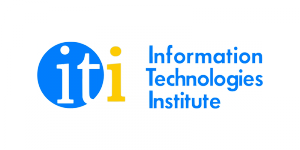
The Centre for Research and Technology-Hellas (CERTH) - Information Technologies Institute (ITI)
The Centre for Research and Technology-Hellas (CERTH), founded in 2000, is the only research centre in Northern Greece and one of the largest in the country. CERTH has important scientific and technological achievements in many areas including: Energy, Environment, Industry, Mechatronics, Information & Communication, Transportation & Sustainable Mobility, Health, Agro-biotechnology, Smart farming, Safety & Security, as well as several cross-disciplinary scientific areas.
The Information Technologies Institute (ITI) of CERTH was founded in 1998 as a non-profit organisation under the auspices of the GSRT, with its head office located in Thessaloniki, Greece. Since 2000 it has been a founding member of the GSRT supervised CERTH. ITIʼs related areas of research are Social Media Analysis, Indexing and Retrieval, Semantic Multimedia Analysis, Image and Signal Processing, Computer and Cognitive Vision, Pattern Recognition and Machine Learning, Human Computer Interaction, Virtual and Augmented Reality and Artificial Intelligence.
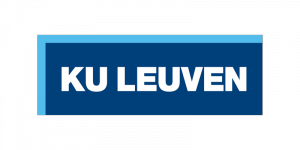
KU Leuven
KU Leuven boasts a rich tradition of education and research that dates back six centuries. The university’s basic research orientation has always been and will remain fundamental research. At the same time, the university remains vigilantly open to contemporary cultural, economic and industrial realities, as well as to the community’s needs and expectations. From a basis of social responsibility and scientific expertise, KU Leuven provides high-quality, comprehensive health care, including specialised tertiary care, in its University Hospitals.
The team of KU Leuven that will work on the project is part of the Technology Cluster Construction, one of the units within the department of Civil Construction. This team (the geomatics research group) is active in the broad field of geomatics, the science of acquiring, storing, representing, processing, analysing and showing geographical information. It encompasses research areas such as surveying, 3D reconstruction, photogrammetry, laser scanning, modelling, GIS, BIM etc. The background of the research group is mostly in the acquisition (laser scanning and photogrammetry) and the analysis of this data. The group is part of the department of civil construction and is therefore interested in the application of its research for construction purposes. That is why Building Information Modelling (BIM) has recently become an important research topic of the group.
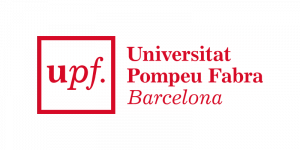
Universitat Pompeu Fabra (UPF)
Universitat Pompeu Fabra (UPF) was established in 1990 as a public university with a strong dedication to excellence in research and teaching. It is the one of the few Spanish university in the world Top 200 (Times Higher Education ranking - THE - 2015), among the first 15 under 50 years (THE2016) and among the first 10 among young universities in the world that progress most quickly (THE2015, Young Universities Summit). UPF is also ranked 9th in Europe (Multirank 2015) and 1st in Spain in teaching and research performance (U-Ranking, BBVA Foundation & Ivie, 2016); in quality output (excellence rate), normalized impact and percentage of collaborative papers with foreign institutions (Scimago 2014).
In V4Design, UPF participates through the Natural Language Processing Group (UPF-TALN) of the Department of Information and Communication Technologies (DTIC). DTIC has an important track record of active participation and in EU projects, including coordination (a total of 66 FP7 projects and 10 other projects in non-FP7 program such as CIP, Ambient Assisted Living and the Lifelong Learning Program, and, up to now 22 H2020 projects). DTIC is the Spanish university department with the largest number of ERC grants (15), forming also part of the FET Flagship initiative “The Human Brain Project”. It is the only Spanish ICT department that has been awarded the “Maria de Maeztu” excellence by the Spanish government for the quality and relevance of its pioneering scientific research, and as the top IT research concentration in Spain.
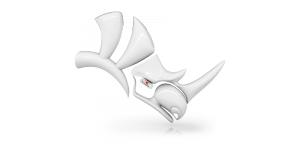
Robert McNeel & Associates
Founded in 1980, Robert McNeel & Associates is a privately-held, employee-owned company with development, sales support, and training offices and affiliates in Seattle, Boston, Miami, Medellin, Barcelona, Rome, Tokyo,
Taipei, Seoul, Kuala Lumpur, Beijing, Shenzhen, and Shanghai. McNeel also have more than 700 dealers, distributors, OEMs, and training centers around the world. Founded in 1998, McNeel Europe is the European, Middle Eastern, and African headquarters for Robert McNeel & Associates. McNeel Europe is responsible for sales, marketing, training, support, and localization of all McNeel products in Europe, Middle East, and Africa (EMEA). McNeel also develop Penguin, Food4Rhino, and other Rhino related products.
McNeel has a long experience in the development and support of architecture and designing software. Our main product is Rhinoceros® which works on both platforms: Windows and OS X. Rhinoceros is a NURBS modeler and open 3rd party plugin development platform based on OpenNURBS and RhinoCommon. McNeel develops Grasshopper a graphical algorithm editor tightly integrated with Rhino’s 3-D modeling tools. Currently it is our most successful plugin in the AEC area. It provides its own rich plugin development ecosystem.
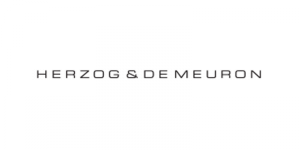
Herzog & de Meuron (HdM)
Herzog & de Meuron (HdM) is a partnership led by Jacques Herzog and Pierre de Meuron with Senior Partners Christine Binswanger, Ascan Mergenthaler and Stefan Marbach. Jacques Herzog and Pierre de Meuron established their office in Basel in 1978. An international team of six Partners, about 40 Associates and 380 collaborators works on projects across Europe, the Americas and Asia.
Herzog & de Meuron have designed a wide range of projects from the small scale of a private home to the large scale of urban design. While many of their projects are highly recognized public facilities, such as stadiums and museums, they have also completed several distinguished private projects including apartment buildings, offices, and factories. Jacques Herzog and Pierre de Meuron have been awarded numerous prizes including the Pritzker Architecture Prize (USA) in 2001, the RIBA Royal Gold Medal (UK) and the Praemium Imperiale (Japan), both in 2007. In 2014, Herzog & de Meuron were awarded the Mies Crown Hall Americas Prize (MCHAP) for 1111 Lincoln Road, Miami Beach
Within Herzog & de Meuron the Digital Technologies department (DT) supports the project teams with the implementation of digital methods at all stages of the design and construction process. DT is a group of specialists with expertise in the overlapping fields of CAD, BIM, computer graphics, visual arts, programming and digital fabrication. Drawing, modelling and building with digital tools is an integral part of the design processes at HdM.
DT therefore explores the latest digital technology and traditional craft simultaneously to support, reflect and help to innovate the creative development at Herzog & de Meuron. As an example, the DT Digital Workshop is a partnership with the traditional model making and prototyping workshop where a collection of CNC machines function as the shortest link between the analogue and the digital world, allowing ideas to seamlessly move back and forth between the two.

The Aristotle University of Thessaloniki (A.U.Th.)
The Aristotle University of Thessaloniki (A.U.Th.) is a state institution established in 1925, under the First Greek Democracy and the largest university in Greece. It comprises 11 faculties which consist of 52 schools. It’s worth mentioning that A.U.Th., in the 2009-2011 period, has collaborated with 1.700 partners (Universities, Research Centers and Companies) for the implementation of 3.500 Research and Technological Development RTD.
The School of Architecture, founded in 1950, is one of the seven schools of the Faculty of engineering. The academic education, which the School is offering has as main objective to create a profile of an architect capable of coping with a broad spectrum of professional activities covering all scales of space, all levels of planning, design and re-design, that is to say from object and interior design, to building and urban design, conservation and restoration, landscape design, urban and regional planning. Τhere are five Departments at School of Architecture: Department of Architectural Design and Visual Arts, Department of Architectural and Urban Design, Department of Urban and Regional Planning and Development, Department of History of Architecture, History of Art, Architectural Morphology and Restoration and Department of Architectural Design and Architectural Technology. A large number of staff members is involved in research projects and programmes that are funded from private or public bodies in Greece and/or the European Union. The Department of Architecture encourages and fosters the initiatives of its staff to assert for such endeavours. The financial management of such projects and programmes is undertaken by the Research Committee of Aristotle University of Thessaloniki. Numerous postgraduate and doctoral students contribute to the development of such projects and programmes.

Solaris Filmproduktion GbR (SFd)
Solaris Filmproduktion GbR (SFd) is a film and multimedia production company founded by Jesper Wachtmeister in 2003. Solaris Filmproduktion is based in Stockholm, Sweden.
Jesper Wachtmeister is the founder of Solaris Filmproduktion, and a director, producer and multimedia artist who today has directed more than ten films in different categories and who also works with multimedia installations. His award winning films have been broadcasted internationally; they are touring art museums and film festivals across the globe, and are represented by several international distributors. His films are part of art, architecture and cultural education in more than 50 universities and institutes in Asia, Europe and North America.
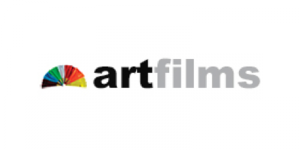
ArtFilms Ltd (AF)
ArtFilms Ltd (AF) was founded in 2000 by theatre practitioner and lecturer in experimental theatre, Kriszta Doczy. In 2004 ArtFilms extended its range of films across all art forms: from performing to performance, from music to electronic media, from physical to spiritual, from visual arts to photography, fashion and later included philosophy and religion, gastronomy, history and politics and psychology. Today ArtFilms offers more than 5000 films for arts education and arts practitioners. The unique collection originates from Australia, UK, USA, Germany, Denmark, France, Hungary, Canada, Switzerland, Pakistan, Indonesia, Africa and Japan. Artfilms has 2.5 million hits on YouTube.
The company's aspiration is to promote art and culture in education and ArtFilms also produces films and fosters new productions by providing encouragement, guidance and support to artists and film makers.
ArtFilms is proudly associated with independent artists and film producers, leading contemporary theatre and dance companies, researchers, lecturers, university departments, contemporary art galleries and archives across the world.
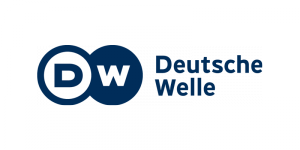
Deutsche Welle (DW)
Founded in 1953, Deutsche Welle (DW) is Germany’s international public broadcaster. Its mission is to represent Germany in the international media landscape with unbiased, reliable journalism and by supporting democracy and human rights worldwide. DW reaches out especially to international decision makers and opinion leaders. It is also meant to provide a forum in Europe and in other parts of the world for a German and European view on important issues, with the aim of fostering understanding and exchange between cultures and people. In addition, DW contributes to promoting the German language.
DW also runs the DW-AKADEMIE, an institute in which current and emerging media professionals from developing and transitional countries are trained and can enhance existing skills. DW today offers multi-platform services in 30 languages to its worldwide audiences. In addition to supplying "traditional" platforms/channels such as TV, radio and online, DW has fully embraced new opportunities offered by digitisation. This means targeting new platforms and devices (e.g. mobile phones, IPTV platforms), spreading content via new distribution means (most of them IP-based) and partnering with new and emerging third party platforms (e.g. Social Media portals such as YouTube, Facebook, Twitter) to increase reach and effectiveness as a publicly funded media company. DW is also working on new formats that are based on a stronger involvement of viewers/users in order to produce and distribute program that is more authentic, immersive and relevant to local communities at the same time. Since the late 1990s, DW has participated in more than 20 nationally and internationally funded R&D projects. DW will make sure that experiences gained in past and ongoing projects will be fed into the V4Design work, and that synergies between other projects, covered topics and personnel will be used to the best advantage of all involved.

Europeana Foundation (EF)
Europeana Foundation (EF) The objectives of the Europeana Foundation and its Network is to create new ways for people to engage with their cultural history, whether it is for work, learning or pleasure. Europeana is a platform for access, use and re-use of Europe’s cultural heritage. We believe in making cultural heritage openly accessible in a digital way, to promote the exchange of ideas and information. This helps us all to understand our cultural diversity better and contributes to a thriving knowledge economy. To this end, we make Europe's cultural and scientific heritage available through a cross-domain portal (Europeana Collections), APIs and Linked Open Data, and cooperate with a large number of museums, archives, audio-visual archives and libraries in the Europeana Network.
The Europeana Network Association represents an active community of individuals interested in digital cultural heritage, who support the values and work of Europeana. Europeana Network Association is made up of hundreds of people working in a huge range of cultural and technology organisations across Europe. To represent the breadth of the Association, its members elect a Members Council (of 25) which in turn elects a Management Board (of six). These six also sit on the Foundation Governing Board.

Nurogames (NURO)
Nurogames (NURO) was founded in 2005 by Jens Piesk and Dr. Holger Sprengel, experienced entrepreneurs in the media sector. NURO develops, produces and markets quality products, services and trend-setting media solutions and interactive rich-media content, focusing on reaching the public through a number of established media channels and social networks. NURO bundles high design and software competence as well as know-how related to the market and communication. All the project teams reflect this interdisciplinary idea. In order to give the customers a lasting competitive edge in communication, NURO is continuously developing new application- and performance-possibilities in the fields of communication and cross-media applications in close cooperation with well-known research- and technology-partners.
